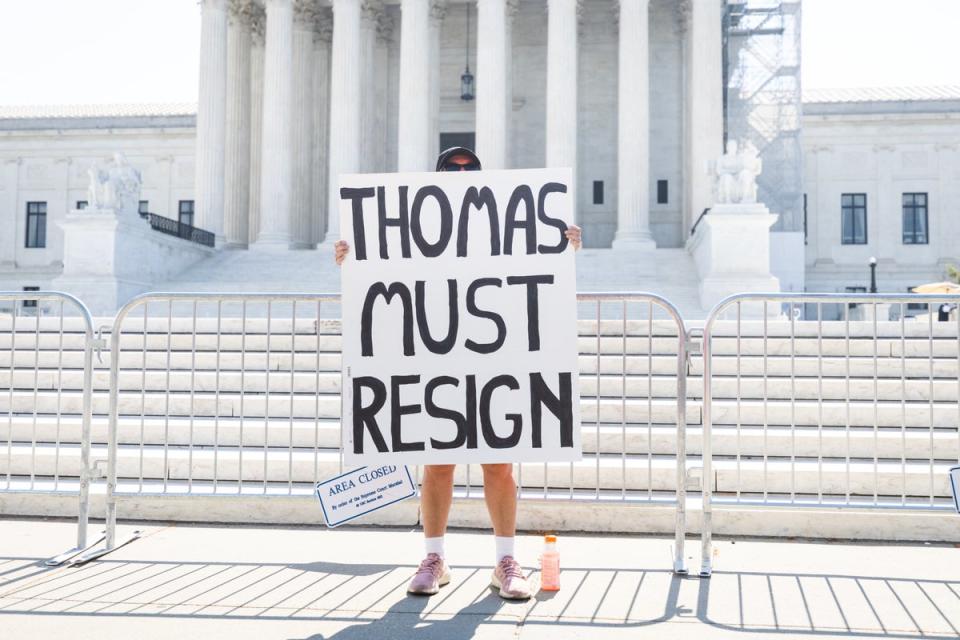Justice Clarence Thomas wants the Supreme Court to take aim at ‘far-reaching’ workplace safety laws
The Supreme Court will not hear a challenge to a key federal agency that oversees workplace safety, which conservative Justice Clarence Thomas slammed as a “far-reaching” authority that threatens Americans’ constitutional rights.
On Tuesday, Supreme Court justices declined to hear a case that questioned the constitutionality of the Occupational Safety and Health Administration, an argument backed by right-wing legal groups and 23 Republican attorneys general.
The challengers had hoped to find a sympathetic court, on the heels of two major rulings that took a sledgehammer to regulatory agencies and the government’s ability to go after lawbreakers.
Only Justices Thomas and Neil Gorsuch wanted to hear the case.
“Congress purported to empower an administrative agency to impose whatever workplace-safety standards it deems ‘appropriate,’” Thomas wrote in his dissent.
“That power extends to virtually every business in the United States,” he added. “The agency claims authority to regulate everything from a power lawnmower’s design … to the level of ‘contact between trainers and whales at SeaWorld.’”

The case stems from a fine imposed by OSHA against an Ohio contractor after a worker was injured by a broken catwalk on a worksite.
The company then sued President Joe Biden’s administration, claiming that the agency’s ability to set “reasonably necessary or appropriate” safety standards violates congress’ constitutional law-making authority.
An appeals court rejected that argument, and the company appealed up to the Supreme Court.
“The Occupational Safety and Health Act may be the broadest delegation of power to an administrative agency found in the United States Code,” Thomas wrote.
“If this far-reaching grant of authority does not impermissibly confer legislative power on an agency, it is hard to imagine what would,” he added.
The court’s rejection of the case arrived the same day that the Biden administration announced sweeping OSHA protections for workers against heat, marking the first major regulations aimed at preventing heat-related deaths on the job.


